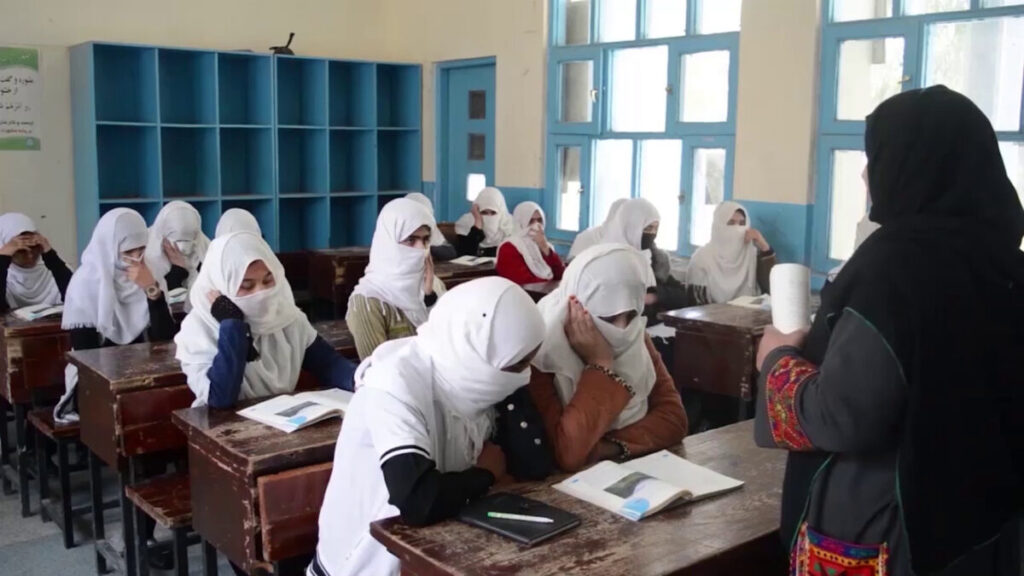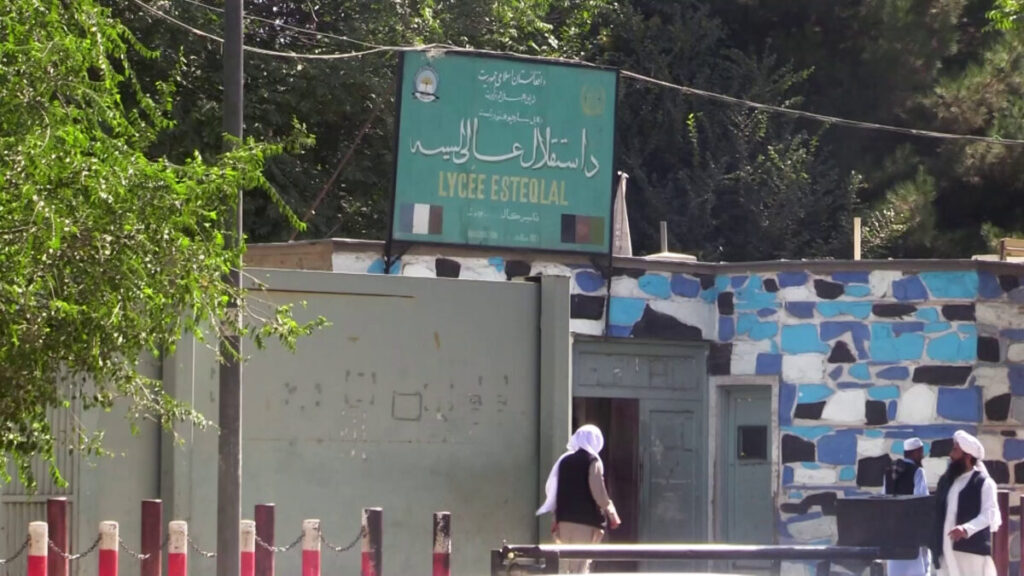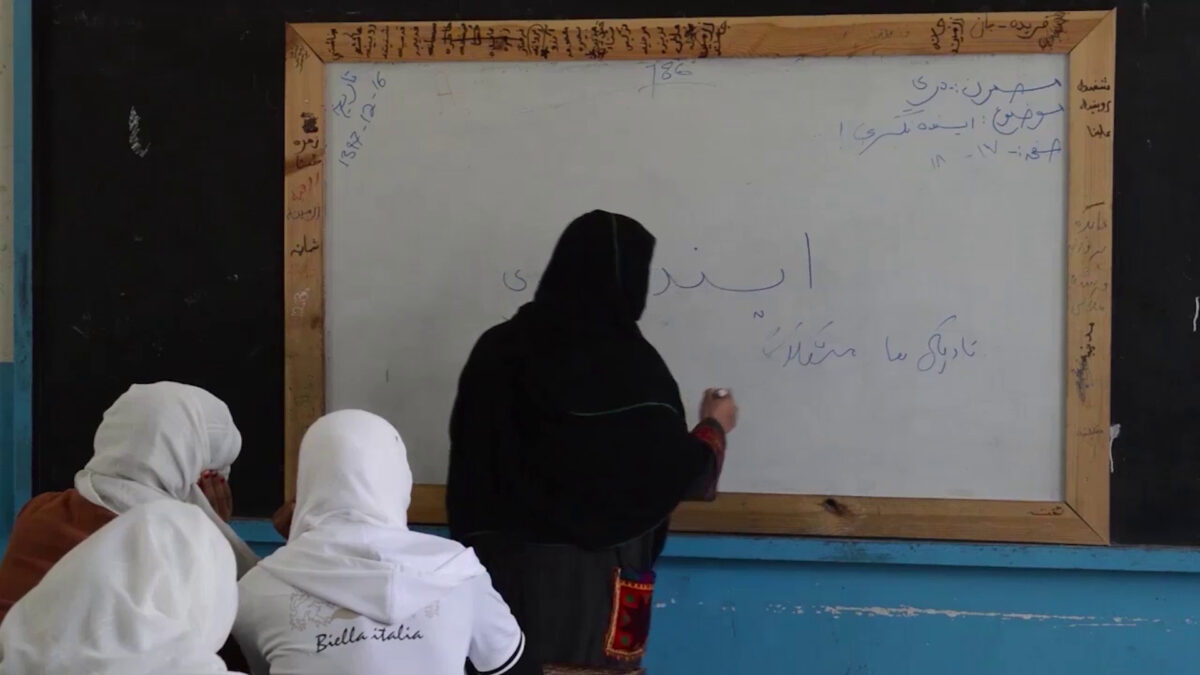World Teacher’s Day was marked with mixed emotions in Kabul on Thursday as some female educators expressed frustration, stating that they have been prevented from pursuing their profession by the Taliban.
The teachers argue that the Taliban’s restrictions on girls’ education and women’s work opportunities have cast a shadow of uncertainty over Afghanistan’s future.
For many female teachers, Teacher’s Day served as a stark reminder of the challenges they currently face. Some educators said they find themselves unable to leave their homes to continue their work due to the imposed restrictions.
“Many female teachers were removed from their posts. Those who are still working are not paid on time and are grappling with economic problems,” said Fatima Mohammadi, a teacher from Farah.
On the occasion of Teacher’s Day, a meeting took place at Amani High School, where the Taliban’s acting minister of education, Habibullah Agha, addressed the audience. However, he did not mention the education of girls or the plight of female teachers in his speech, and focused solely on the quality of education.
“If our esteemed educators dedicate themselves to providing quality education, our students will be better equipped to address Afghanistan’s future needs,” he said.

At the same event in Kabul, the deputy chief minister of the Taliban, Abdul Salam Hanafi, encouraged teachers to persevere in their mission to educate the youth of Afghanistan.
“We call upon our esteemed teachers to view their role not just as a duty but as a profound responsibility,” he said.
According to him, at least 10 million students have received an education in over 18,000 education centers, including schools and madrassas, by 246,000 teachers over the past two years.

Female teachers, however, remain critical of the Taliban’s policies, which they view as regressive and detrimental to women’s rights. They called for female teachers to be granted access to schools to continue their work.
“From the time when girls’ schools were closed, we were assigned to work in far districts. This has created many problems for us. Some female teachers who were the only breadwinners for their families, lost their jobs, and in general, they face many hardships,” said Shukria Saeedi, a teacher from Farah.
Under the Taliban’s rule, a significant number of female teachers have lost their jobs, despite making up a substantial portion of the teaching workforce during the previous government’s term, which employed over 200,000 teachers, of which 40% were women.





